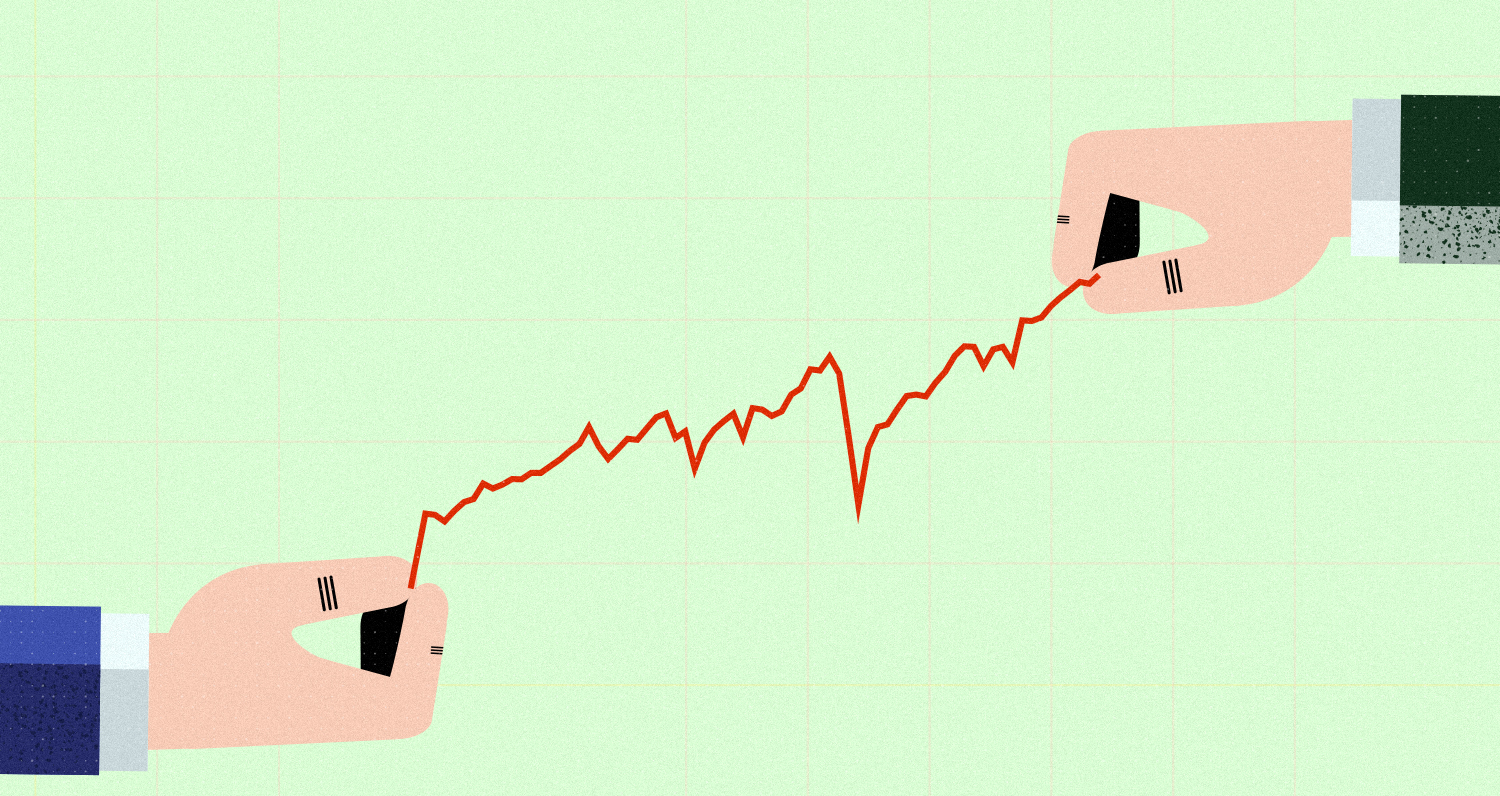The word “currency devaluation” has a negative connotation to it, right? Yet, in some cases, it could potentially have positive effects on the stock market. How? Stick around to know more about currency devaluation, why it happens, and its impact on the stock market.
What’s an exchange rate?
An exchange rate is the price of a country’s currency in terms of another currency. Given the relevance of the U.S. dollar, most exchange rates use the USD against the country’s local currency as a reference.
What’s currency devaluation?
Devaluation is basically the reduction in the value of one currency against another. Countries adopt different exchange rate regimes as part of the monetary policy of their central bank. The most common ones are Fixed, Free Float, and Managed Float.
What’s a fixed exchange rate?
In fixed exchange systems, the country’s central bank ties the country’s official currency exchange rate to another country’s currency or the price of gold – this is also known as a pegged currency. For example, if the EGP is pegged to the USD and the foreign exchange rate (aka FX) is EGP 20 per dollar, the EGP cannot shy away from the EGP 20 level, unless the CBE changes the fixed rate.
What’s a freely floating exchange rate?
Unlike the fixed rate, a floating exchange rate is determined by the free market through supply and demand i.e. if there is more demand for the currency, it will increase in value, and vice versa. And when the supply of that currency is short in comparison to that demand, its value could also increase.
A floating rate is often referred to as “self-correcting,” as any distortions in the value of the currency caused by government intervention will automatically be corrected – leading to a currency that reflects its actual value.
What’s a managed floating exchange rate?
A managed floating exchange rate is a system that allows a nation’s central bank to intervene regularly in foreign exchange markets, to change the direction of the currency’s float and/or reduce the amount of currency volatility. This exchange rate system is also known as a “dirty float”. Egypt’s currency, for instance, used to have a managed floating exchange rate until the CBE announced the floatation of the Egyptian pound – on the 27th of October 2022.
Why would a country float its currency?
There are multiple factors that may lead a government to devalue its currency. To understand why a government would float its currency, it is important to understand why it had it fixed in the first place.
An importing country could have a fixed currency to contain inflation and prevent prices from increasing. In a lot of instances, this can become very expensive and eat away from a country’s foreign reserves. For that reason, governments would have to resort to floating or devaluing their currency.
On the other hand, a government may float its currency to restore foreign investor confidence in the market. Foreign investors tend to shy away from investing in markets with a fixed currency – because the currency doesn’t reflect its true value

Another thing that could push governments to float the currency is to boost exports and discourage imports. When the value of a currency decreases, its exports become cheaper for foreigners while its imports from abroad become more expensive. Thus, domestic consumers are less likely to buy imports, helping domestic businesses grow. This also improves the country’s balance of payments, as the trade deficit shrinks due to increasing exports and decreasing imports.
How does devaluation affect the stock market?
If the currency is allowed to float, there is a chance that its value will decrease compared to other currencies. In this case, the lower currency value will impact the stock market. Let us tell you how.
Foreigners will want to buy MORE stocks
A floating exchange rate offers more flexibility for supply and demand to dictate the true value of a currency, which in return will grow investors’ confidence in a country’s market.
Moreover, currency devaluation attracts foreigners to invest in the stock market since they will have greater purchasing power, allowing them to buy more stocks for the same amount of money. Seizing this golden opportunity, investors will buy more stocks, thus, the stock prices will go up and the stock market will bounce back with time.
Import-reliant companies
Companies and businesses that massively rely on importing raw materials or commodities will face much higher costs since the devaluation in the currency will increase the price of imports. This can have a negative impact on the company, especially if its revenues are in the local currency – which could affect its stock price.
Export-reliant companies
Companies that depend heavily on exporting their products and services will stand to benefit the most from a currency devaluation. The devaluation increases the competitiveness of these companies’ products and positively impacts revenues as foreign sales bring in foreign currency – which could also have an effect on their stock price.
Although devaluation might not sound like the best news for the everyday consumer, it does have its pros in the grand scheme of things. The silver lining is that it helps restore investor confidence, boosts the stock market in the long run, and helps reflect the true value of the currency.










